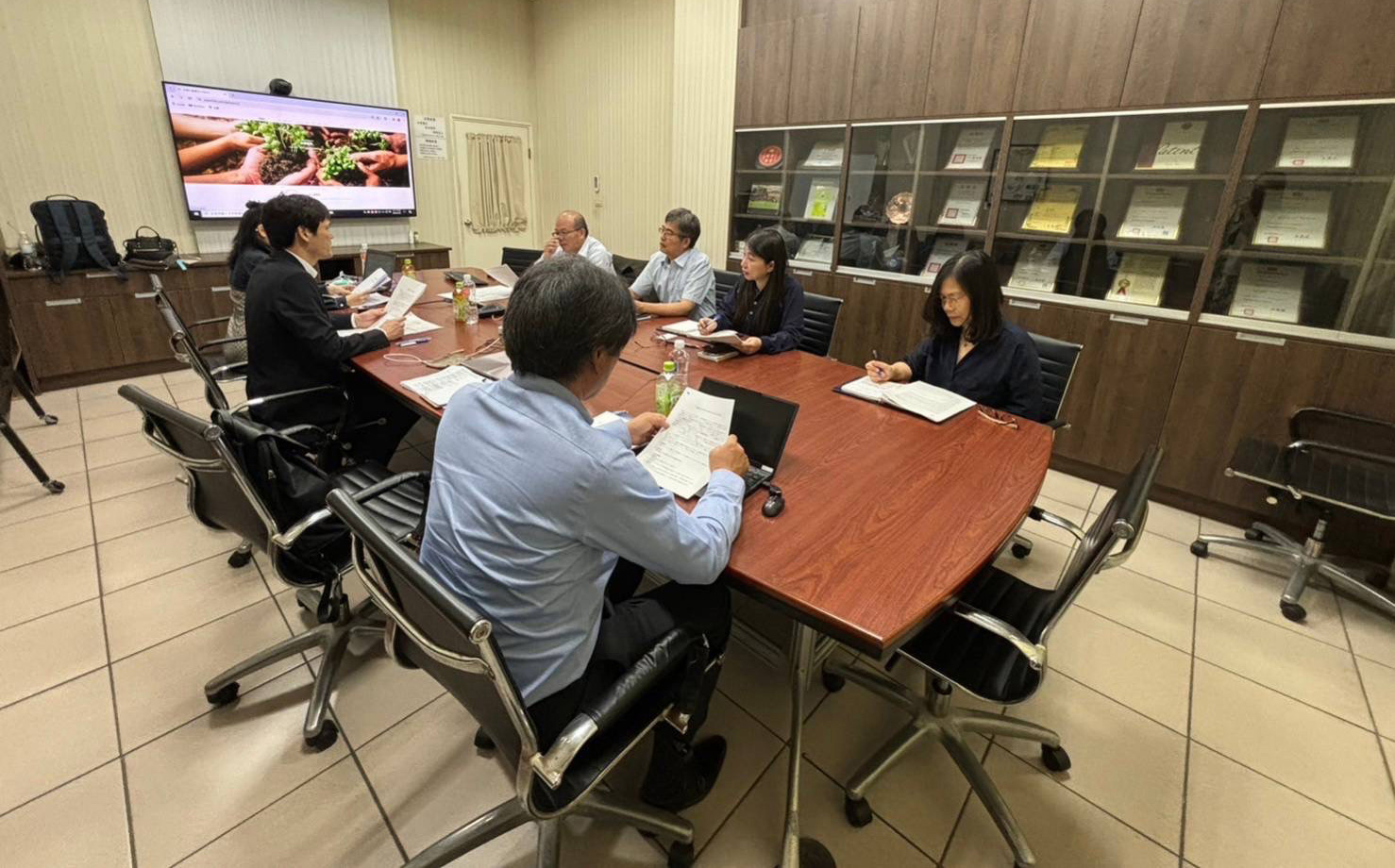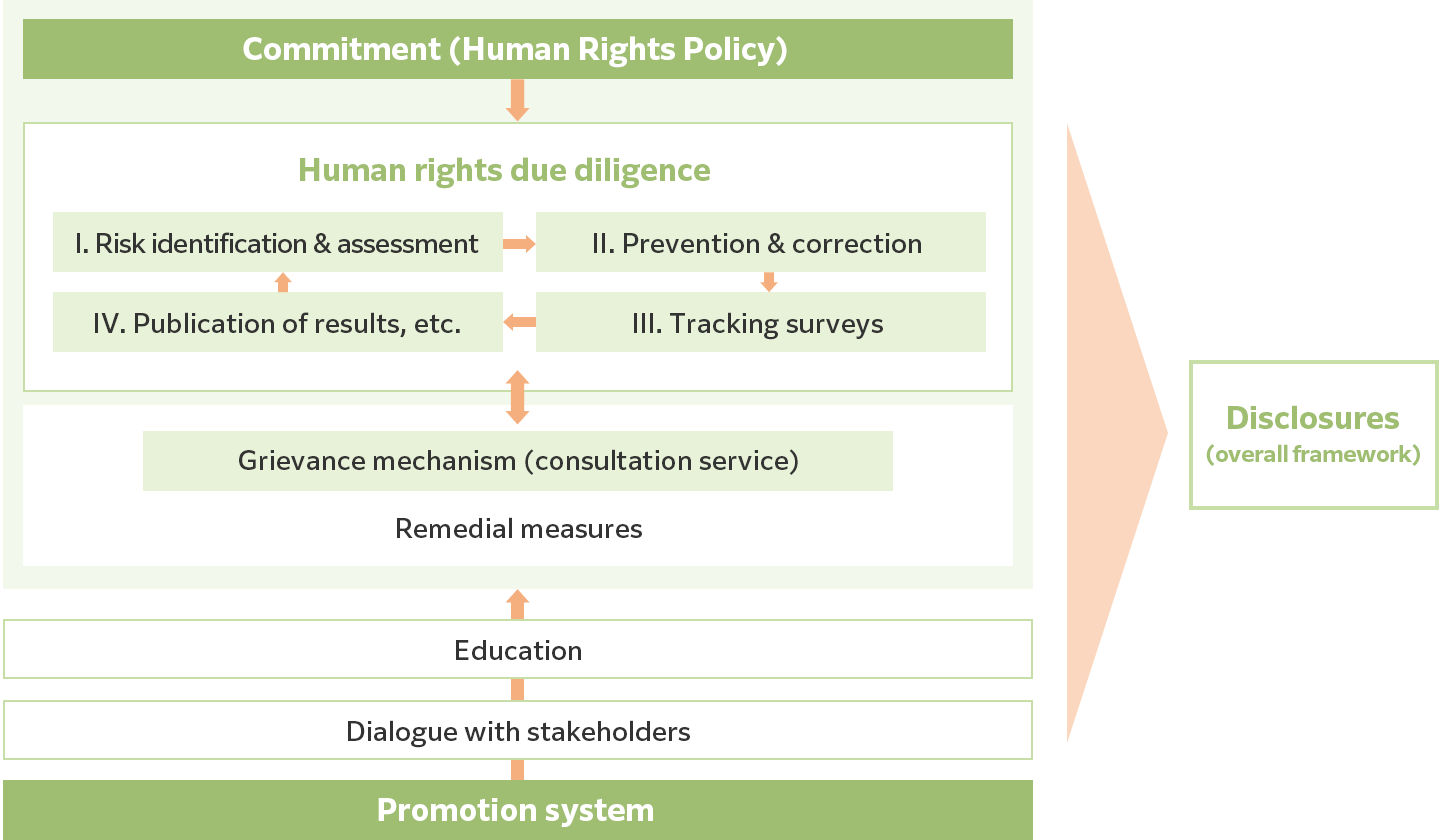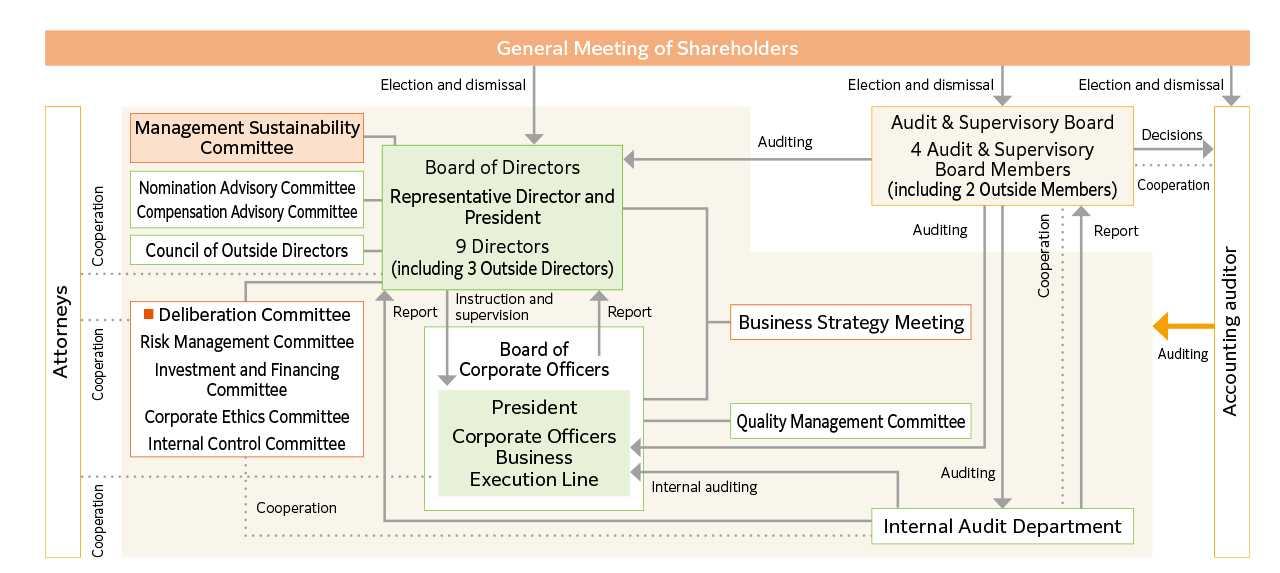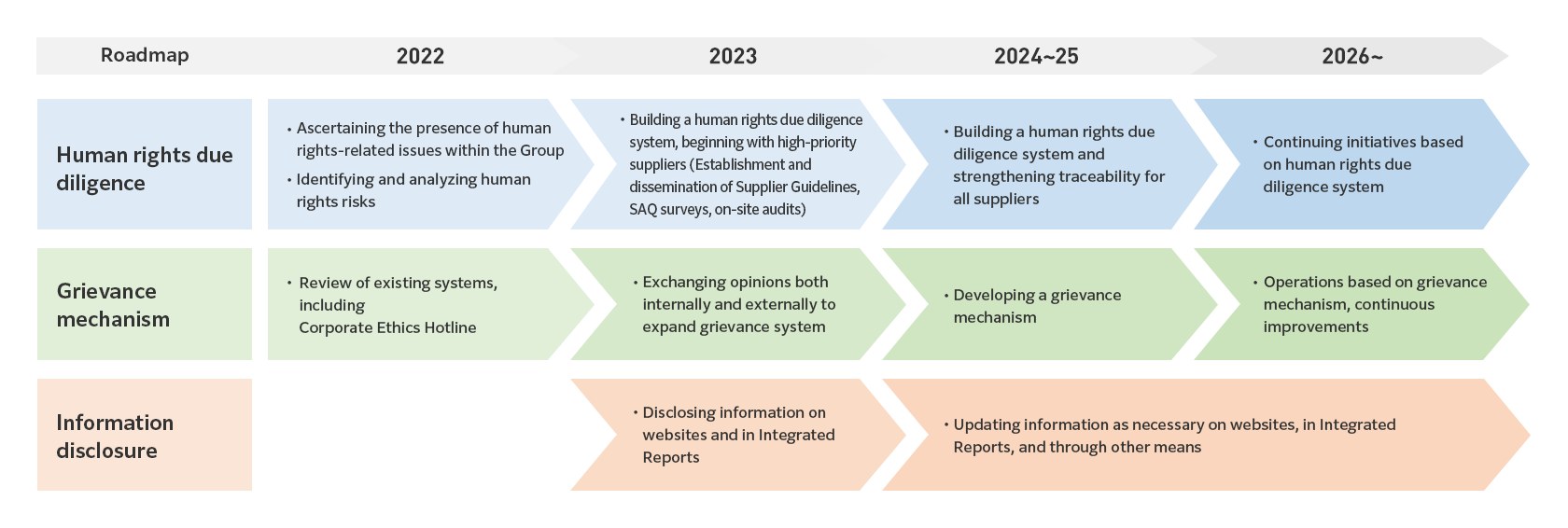Recognizing that our business may directly or indirectly affect human rights in our supply chain, we promote group-wide efforts to respect human rights in line with the United Nations Guiding Principles on Business and Human Rights. We respect human rights as defined in the International Bill of Human Rights, the OECD Guidelines for Multinational Enterprises, and the ILO Declaration on Fundamental Principles and Rights at Work.
Our main human rights framework comprises commitments under our human rights policy, human rights due diligence for the Group and our supply chain, and remedial measures under our grievance mechanism. We publish the details of our efforts on our website as appropriate. Furthermore, we consider it vital to instill the importance of respecting human rights through education for management and employees, and to understand and respond to stakeholders’ views and requests through dialogue with them.
On March 25, 2022, we established The Nisshin OilliO Group Human Rights Policy, and are promoting human rights efforts throughout our supply chain.
Important management issues are deliberated and decided by the Board of Directors. Basic policies, strategies, and measures regarding human rights and other sustainability issues are approved by the Board of Directors after deliberation by the Business Strategy Council, a deliberation body for the execution of business.
(1) Policy
In accordance with the process advocated in the UN Guiding Principles on Business and Human Rights, the Ministry of Economy, Trade and Industry’s Guidelines on Respecting Human Rights in Responsible Supply Chains, and other publications, we identify and assess human rights risks throughout our supply chain and implement human rights due diligence efforts while receiving advice from outside experts.
(2) Status of implementation
In fiscal 2022, after seeking the opinions of outside experts, we classified the Group’s supply chain into agricultural, general manufacturing, and non-manufacturing sectors, and analyzed human rights risks by assessing in terms of “severity” and “likelihood of occurrence” with regard to internationally required human rights items.
We also developed a Self-Assessment Questionnaire (SAQ) with reference to the ILO Declaration, UN Global Compact, ETI Base Code, and the like, and administered it to consolidated and non-consolidated companies. Based on the results of this survey and other information, we have established The Nisshin OilliO Group Human Rights Guidelines, which set out standards to be observed by Group companies.
In light of the Group’s human rights risks, in fiscal 2023, we established The Nisshin OilliO Group Supplier Guidelines and took steps to disseminate this information. We then administered the SAQ to roughly 40 high-priority manufacturing contractors in terms of impact on our business, marketability, regional characteristics, and regulatory compliance, and received responses from all companies. Additionally, we visited two of these companies to explain The Nisshin OilliO Group Human Rights Policy and engage in dialogue, including exchanging opinions.
In fiscal 2024, we administered the SAQ to 24 of our suppliers of soybean, rapeseed, palm oil, and other high-priority raw materials as well as key logistics-related suppliers of the Group’s products, and visited four of these companies to engage in dialogue. We also administered the SAQ to 18 Group companies, mainly to check on their compliance with The Nisshin OilliO Group Human Rights Guidelines.
Although the results of the SAQ and dialogue did not reveal any new severe human rights risks, we will continue our efforts to identify and improve on human rights issues in Group companies and our supply chain through ongoing surveys and dialogue.
The Nisshin OilliO Group Supplier Guidelines
■ An example of dialogue with suppliers

Our Malaysian subsidiary Intercontinental Specialty Fats Sdn. Bhd. (ISF) promotes human rights efforts through engagement with palm plantations and oil mills. With the support of Earthworm (an NPO), ISF worked with Ferrero to investigate and provide support for improving the plantation laborers’ work environments and the hiring of foreign workers at Johor Plantations, one of the Group’s main sourcing plantations. We also monitor the action plans of the plantations to which we provide support.
ISF also surveys small and medium-sized oil mills—the direct suppliers—on the progress of their NDPE commitments to promote their understanding of the key points of NDPE and provide support for acquiring RSPO certification and other aspects of operation and management.
In light of the Group’s human rights risks, in fiscal 2025, we will broaden the scope of our promotion of human rights due diligence efforts to include logistics- and packaging material-related suppliers, who are essential for supplying the Group’s products.




